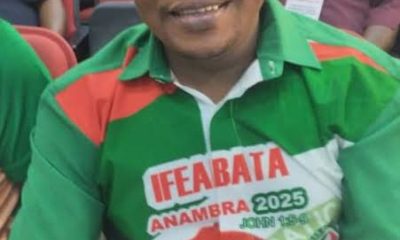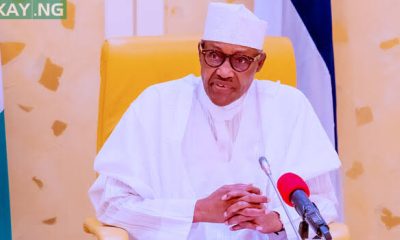Opinion
Did Yagba Federal Constituency Rotation Arrangement End in 2011?
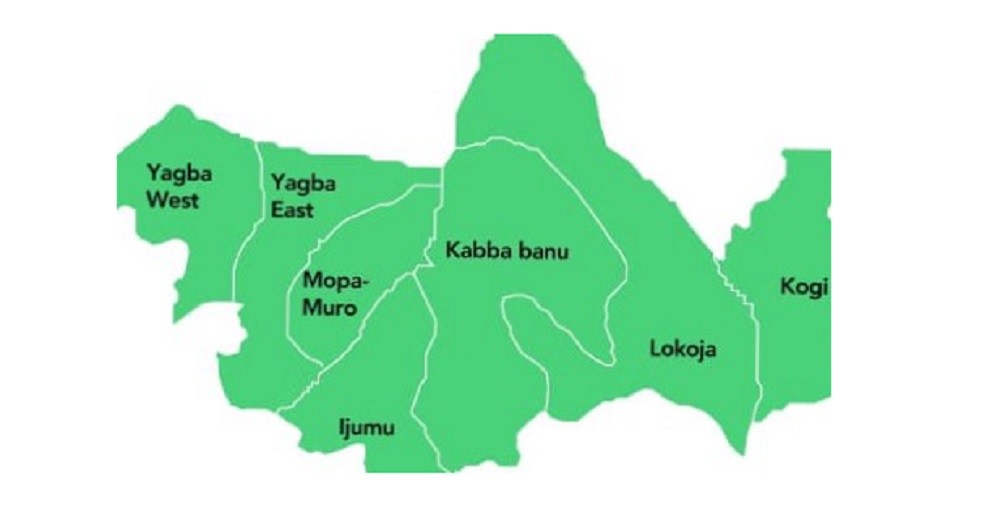
By Debo Alabi
Yagba Federal Constituency in the western Kogi senatorial zone, consists of three local councils, namely Mopamuro, Yagba East and Yagba West. In 1999, at the outset of the Fourth Republic political dispensation in Nigeria, each of the three local government areas fielded aspirants for the seat. The Peoples Democratic Party, (PDP), the dominant political association at the time, guaranteed success for its flagbearers. In the run-up to the 1999 polls, all eyes were on the PDP primaries. Shola Ojo, (Mopamuro); Tolorunjuwon Joseph Faniyi (Yagba East), Engr Sunday Karimi and Mrs Margret Orebiyi, (Yagba West) were the frontrunning aspirants. Orebiyi would later step down for Karimi. Despite the superior strength of Yagba West, which consists of 14 electoral wards, four more than Mopamuro and Yagba East with 10 electoral wards apiece, the PDP ticket was eventually decided in favour of Ojo (Mopamuro).
Ojo’s emegence was more of a consensus in an arrangement superintended by party elders under the leadership of the respected patriarch and one of the founding fathers of PDP in Nigeria, the late Chief Sunday Awoniyi. Aspirants from the two other local government areas were prevailed upon by the elders to await their turns in subsequent electoral cycles. Meanwhile, Yagba West fielded a candidate for the 1999 election in the late legal icon, Chief Tunji Arosanyin who was the flagbearer of the defunct All Peoples Party (APP). Ojo, also an attorney, hitherto domiciled in Kano, the formidable hub of commerce in northern Nigeria, went on to win the general election of that year.
Ojo served in the “Green Chamber” from 1999 to 2003. At that time, PDP’s internal, mutual understanding based on the rotation principle expressly asserted that each LGA would serve just one term, after which the position would rotate to another. Contestants for the 2003 PDP ticket included Karimi, Faniyi, Mrs Funmi Abiodun, a lawyer; the Port Harcourt based quantity surveyor and expert in the Marine sector, Bode Olorunsola and J.K Odeyemi, an engineer. The primary election was headed for a runoff between Faniyi and Karimi, but, again, the elders in their wisdom settled for a simple majority. Faniyi picked PDP ticket and he went on to defeat his opponent in the reconfigured APP, which had then become the All Nigeria People’s Party, (ANPP), Mrs Justina Abanida. Abanida, a one time Commissioner for Justice and Attorney General. Abanida, a lawyer, hails from Egbe, Yagba West Council.
For Karimi, the waiting game continued even when the seat berthed in Yagba West. Karimi lost PDP’s ticket to a fellow Yagba West opponent, Samuel Bamidele Aro.. Aro, a successful oil marketer, won the 2007 election into the House of Representatives, which took place on April 21, 2007. He defeated Bolaji Oluwafemi of the defunct Action Congress (AC) and served in the lower parliament until 2011.
The extant rotational arrangement forbade Mopamuro and Yagba East from fielding candidates for the 2007 election. In fairness to the past occupants of the seat, performance was not a yardstick for continuity. Based on the extant zoning template of the PDP, the baton was expected to be passed back to Mopamuro in 2011. However, at the conclusion of his first term in 2011, Aro, the incumbent declared his intention for a second term. Backed by the Kogi State governor at the time, Ibrahim Idris and machinery of the ruling party at the state level, Aro defeated his lone challenger for the PDP ticket, Chief Folorunsho Daniyan, (from Mopamuro). However, the outcome of 2011 primary election that threw up Aro did not sit well with the factional PDP who beckoned on Karimi to step forward in another political party.
Karimi’s name was a last-minute inclusion in the portal of the Independent National Electoral Commission (INEC) as the candidate of Action Congress of Nigeria (ACN). In what turned out a historic protest vote, Karimi defeated PDP’s Aro in the general election held on April 9th, 2011. The strength of the PDP had been further decimated in the aftermath of the controversies that trailed its primaries. Daniyan left PDP and flew the flag of the ANPP. He came third in the general election. For the first time, in 2011, Mopamuro, Yagba West and Yagba East all fielded candidates for the House of Representatives.
The 2011 episode effectively marked the fatal end to one term and rotation of the seat in Yagba Federal Constituency.
Highlights
Karimi got the mandate of Yagba people to represent them in 2011 when he did not aspire for it from the start to the race and when it was supposed to be the turn of Mopamuro. He was not even on the list of aspirants jostling for the much-sought ticket of the PDP in that year’s primaries. He also became the first Yagba man to be reelected, thereby setting the precedence for continuity.
As the sitting Rep, Karimi (Yagba West) returned to his old party (PDP) and sought re-election in 2015. He picked the PDP ticket ahead of Kano based business tycoon, Leke Abejide (Yagba East) and successful civil engineer, Dele Obiniyi (Yagba East).
Karimi went on to win the parliamentary election held on March 28, 2015. He defeated Ganiyu Salaudeen of the Accord Party (AP/Yagba East), Kayode Adegbayo (APC/Yagba East), and Joseph Blessing of the Labour Party (LP/Mopamuro). Note again that all three LGAs fielded candidates in 2015.
Subsequently, Karimi’s record was equalled by Leke Abejide (Yagba East), now on his second term. His back-to-back victory in the 2019 and 2023 elections were achieved under the platform of lesser known African Democratic Congress (ADC).
Instructively, to further butress the point that rotation may have become a thing of the past, Abejide’s victories in both elections were far from a walkover, not for him, not for Yagba East. With the exception of Yagba West, the 2019 edition was keenly contested by aspirants from Mopamuro and Yagba East. A total of 15 candidates registered with the Independent National Electoral Commission (INEC) to contest in the 2019 election. ADC candidate, Abejide won the election, defeating APC’s Henry Abimbola (Mopamuro), PDP’s Fabola James (Yagba East), SDP’s Oluwafemi Iselaiye (Yagba East) and 12 other candidates from Mopamuro and Yagba East. The list of candidates and their parties for the 2019 polls are as follows: Adebayo Kenneth (PPC); Oluropo Odofin Augustine (MPN); Jonathan Ayokunle Olushola (ACCORD): Balogun Blessing Olumayowa (APM); Somidire Comfort (ACPN); Atteh Oladimeji (PPN); Yusuf Mary Oluwatoyin (DA); Isah Saidu (LP); Omowaiye Ete A. (UPP); Omole David Bolorundoro (UPC) and Abdurafiu Ismail (PT).
The all-commers scenario was again replayed in 2023 when Abejide (ADC/Yagba East) ran against Folorunsho Olafemi (APC/Mopamuro), Joseph Faniyi (PDP/Yagba East).and Jeremiah Oladokun (APGA/Yagba East). The list incuded Alonge Victor Oluwabusayo (Accord), Adekunle Komolafe (NNPP), Bamigboye Sunday (ADP), Musa Lasisi (Action Alliance), Jethro Olusegun Solomon (SDP) and Obiniyi Bamidele (YPP).
Rotation Can Only Be By Negotiation, Not Entitlement Claim
Ahead of the 2027 election, a notable Yagba political figure who preferred anonymity due to the sensitive nature of the debate on the continuity of rotation representation told our reporter that based on the foregoing, if at all there would be further adherence to rotation, “it can only be by negotiation, not by entitlement claim”.
He said: “The rotational arrangement for the HOR election in Yagbaland has been a straightforward and adaptable practice since inception. This arrangement was designed to give each local government in the federal constituency a fair opportunity. The Yagba federal constituency comprises three local government areas: Yagba West, Yagba East, and Mopamuro. Historically, Mopamuro was the first local government to benefit from this arrangement in 1999 with Hon. Sola Ojo, followed by Yagba East with Hon. T.J. Faniyi in 2003. In 2007, Hon. Sam Aro benefited from the rotation, and in 2011, it was Yagba West’s turn again with Hon. Sunday Karimi, who served two terms. This two-term pattern continued with Hon. Leke Abejide from Yagba East in 2019, who is currently serving his second term. Ideally, after Hon. Leke Abejide’s second term, Mopamuro local government should be the next to benefit from the rotation and to spend their two terms. However, Mopamuro’s inconsistent adherence to the rotation has been a significant constraint.
In the last two elections, Mopamuro fielded candidates against Hon. Leke Abejide, which was unfortunate as their action demonstrated their disregard for the rotation. Mr Tuesday Abimbola and Engr Folorunsho Olafemi contested twice with Leke Abejide. If they had won, it would have also conflicted the entire process. As an experienced political figure in Yagba federal constituency, I cautioned Mopamuro aspirants to respect the rotation and not contest against Yagba East candidates. Unfortunately, my warnings were ignored, and Mopamuro’s actions have put them at a disadvantage. If Mopamuro had respected the rotation and not contested against Yagba East in the last two elections, it would have been incumbent on Yagba East not to run against them. However, since Mopamuro did contest, Yagba East’s potential third term would alter the rotation cycle, making Yagba West eligible to contest after Yagba East.
It will take a proper consultation and a United front from Mopamuro to sustain their alliance with the rotation which they had kicked against”.
As it were, from the viewpoints of public affairs analysts and political pundits, Mopamuro has held the seat one-term of four years since 1999, Yagba West had 3 terms of 12 years and Yagba East two terms of eight years. From the foregoing, Mopamuro’s agitation to have the 2027 HOR seat is not out of order. The point has also been made for the entrenchment of fairness and equity as well as the sustenance of unity within the region. One can not also rule out the fact that, with the exception of 2003 election, Mopamuro has consistently fielded candidates against candidates from Yagba West and Yagba East.
Twice in 2019 and 2023, the ruling APC conceded its tickets to Mopamuro. Both chances were lost more to internal divisions within the local government. Power is not given; it is taken. The bottomline is that 2027 election doesn’t look like one to be determined by entitlement. Rotation is achievable only by negotiation. Rotation is not a law. Mopamuro must work hard for it, speak with one voice, and present a formidable candidate, as a prerequisite for negotiation.
Effective Representation As a Factor
While the idea of rotation may seem appealing, the performance of the sitting member and the capacity to drive meaningful development and growth are key factors in effective representation, which should not be overlooked going into the 2027 election. Rotation may seem like a fair and equitable approach, but the electorate is also aware it can lead to a lack of continuity and consistency in representation. This also can result in a lack of accountability, as representatives may not feel compelled to deliver on their promises. Furthermore, rotation can lead to a focus on short-term gains rather than long-term development. Again, anyone thinking of running against an incumbent must make a careful examination of whether it can be done.
In the modern-day election pattern in Nigeria, incumbents win elections about 85 percent. An entrenched incumbent is even harder to beat than a more recently elected one. Here are some factors to consider before going into the decision of whether a challenge could be successful. The first step is to consider the overall political environment and the general mood of the electorate. Generally, there are two things that should worry incumbents.
One is whether the electorate perceives that things are on the right track. The other is whether the electorate thinks the incumbent care about them. For any sitting representative who receives favourable ratings from his people—based on these two factors—it will require an out-of
-this-world strategy for any successful challenge to happen.
● Debo Alabi, a public affairs analyst and native of Yagba, writes from Lekki, Lagos
Opinion
CBN under Cardoso and $6.83 Billion balance of payments surplus in 2024 that signals economic resurgence

By Ibrahim Modibbo
Since his appointment as the Governor of the Central Bank of Nigeria, in October 5, 2023, Olayemi Cardoso has continue to bring on board wide-range of macroeconomic reforms, stronger trade performance, and renewed investor confidence in Nigeria’s economy, that were aimed at putting the country back to its economic footing, as a strong economy that is second to none in Africa.
As part of the ongoing reforms, the Central Bank of Nigeria recently announced a Balance of Payments (BOP) surplus of $6.83 billion for the 2024 financial year, marking a decisive turnaround from deficits of $3.34 billion in 2023 and $3.32 billion in 2022, according to a press statement from Mrs Sidi-Ali, Hakama, the Ag. Director, Corporate Communications of the apex bank.
CBN says “the current and capital account recorded a surplus of $17.22 billion in 2024, underpinned by a goods trade surplus of $13.17 billion. Petroleum imports declined by 23.2% to $14.06 billion, while non-oil imports fell by 12.6% to $25.74 billion. On the export side, gas exports rose by 48.3% to $8.66 billion, and non-oil exports increased by 24.6% to $7.46 billion.”
While “remittance inflows remained resilient, with personal remittances rising by 8.9% to $20.93 billion. International Money Transfer Operator (IMTO) inflows surged by 43.5% to $4.73 billion, up from $3.30 billion in 2023, reflecting stronger engagement from the Nigerian diaspora. Official development assistance also rose by 6.2% to $3.37 billion,” the statement added.
Nigeria recorded a net acquisition of financial assets totalling $12.12 billion. Portfolio Investment inflows more than doubled, increasing by 106.5% to $13.35 billion, while resident foreign currency holdings grew by $5.41 billion, indicating stronger confidence in domestic economic stability. Although foreign direct investment fell by 42.3% to $1.08 billion, the overall financial account posted notable gains.
The country’s external reserves increased by $6.0 billion to $40.19 billion by year-end 2024, bolstering its external buffer.
Notably, net errors and omissions narrowed significantly by 79.5% to negative $5.10 billion in 2024, down from $24.90 billion in 2023, reflecting substantial improvements in data availability and capture. This represents a major advance in data accuracy, transparency, and overall reporting integrity.
The 2024 BOP surplus highlights the effectiveness of Nigeria’s ongoing reform agenda. The liberalisation and unification of the foreign exchange market, a disciplined monetary policy approach to managing inflation and stabilising the naira, and coordinated fiscal and monetary measures have all contributed to enhanced competitiveness and investor sentiment.
“The positive turnaround in our external finances is evidence of effective policy implementation and our unwavering commitment to macroeconomic stability,” said the Governor of the Central Bank of Nigeria. “This surplus marks an important step forward for Nigeria’s economy, benefiting investors, businesses, and everyday Nigerians alike,” the statement further noted.
Other notable indicators to building strong economy by this policy include but not limited to a stronger trade performance, particularly in the current and capital accounts, with a surplus of $17.22 billion in 2024, has contributed to the balance of payments surplus. A goods trade surplus of $13.17 billion that will further strengthens the positive trend. The decline in petroleum and non-oil imports also contributes to a more favorable trade balance.
It will noteworthy to note that the CBN’s reforms have increased investor confidence, leading to higher foreign portfolio investment inflows. Portfolio investment inflows more than doubled in 2024, reaching $13.35 billion. This influx of capital indicates a stronger belief in the stability and growth prospects of the Nigerian economy.
The apex bank’s disciplined monetary policy and FX market reforms on the other hand are aimed at managing inflation and stabilizing the Naira, has contributed to a more stable financial system.
The liberalization and unification of the foreign exchange market have led to greater transparency and reduced distortions in the market.
The implementation of an Electronic Foreign Exchange Matching System (EFEMS) further enhances transparency and efficiency in the FX market.
The reforms, including the unification of the exchange rate, have improved Nigeria’s competitiveness and attracted more foreign investment. Testament to this is the clearing of a $7 billion forex backlog which has also boosted the country’s image with foreign investors.
Also, the significant improvements in data availability and capture have led to a marked reduction in net errors and omissions in the balance of payments data. This enhanced data integrity provides a more accurate picture of the country’s economic performance and builds trust with stakeholders.
In conclusion, the combination of strong trade performance, renewed investor confidence, disciplined monetary policy, and improved data integrity, all facilitated by the CBN’s wide-ranging reforms, are key indicators of Nigeria’s economic resurgence. These developments demonstrate the positive impact of the reforms on the nation’s external finances and overall economic stability.
Dr Moddibo, a public analyst, wrote in from Abuja
Opinion
CBN leads financial dialogue with JP Morgan, NGX, others, in pre-spring meetings Forum

By Dr. Ibrahim Modibbo
In anticipation of the International Monetary Fund (IMF) and World Bank Group (WBG) Spring meetings which commenced on Monday, April 21, 2025, the Central Bank of Nigeria (CBN) partnered with J.P. Morgan, the Nigerian Exchange Group (NGX) and Africa Private Capital Association (AVCA) to host a high-profile global forum at Nasdaq MarketSite in New York on Thursday, April 17, 2025, according to press statement by Dr Ibrahim Moddibo.
The forum, titled “The Nigeria Investment Agenda: Pathways for Growth & Global Partnerships,” convened global investors, diaspora leaders, and senior financial stakeholders to examine Nigeria’s macroeconomic prospects and ongoing reform progress.During his commanding address, Governor Olayemi Cardoso outlined his comprehensive reform strategy encompassing monetary tightening, foreign exchange market transparency, and enhanced financial governance.
He emphasized that these initiatives are establishing the foundation for sustainable macroeconomic stability and heralding a new era of transparency and confidence.Governor Cardoso reaffirmed the CBN’s unwavering commitment to rebuilding credibility through orthodox monetary policy, transparency, and consistency.
“We inherited a crisis of confidence but chose a different path. We’re not turning back,” he stated decisively.In a powerful fireside chat between the Governor and Nobel Prize-winning economist Dr. James Robinson, Reverend Richard L. Pearson Professor at the University of Chicago, Governor Cardoso elaborated on his vision to reestablish the CBN as a credible, trusted institution – rooted in domestic excellence and respected internationally.Mr. Muhammad Sani Abdullahi, Deputy Governor for Economic Policy at the CBN, delivered a macroeconomic update highlighting sharp increases in foreign exchange turnover, emerging signs of disinflation, and strengthening external reserves. “With a market-determined exchange rate and a transparent, rules-based policy framework, confidence is gradually being restored in Nigeria’s economy,” he noted.
Welcoming participants to the forum, Dr. Nkiru Balonwu, Adviser to the CBN Governor on Stakeholder Engagement and Strategic Communication, framed the forum as a key moment in the Bank’s broader engagement strategy. “Today is more than a conversation,” she noted.
It’s about opening the books on the CBN’s transformation story under Governor Cardoso – sharing the facts, interrogating the progress, and looking ahead together at what more can be done to build sustainable partnerships and unlock long-term capital,” she explained.
Another key highlight of the event was the panel discussion entitled “Repricing Nigeria: Assessing the Scope for Sustained Change.” Moderated by Gavin Serkin, Founder of New Markets Media & Intelligence, the panel featured global financial luminaries: Joyce Chang, Chair of Global Research at JPMorgan Chase; Jason Rekate, Global Co-Head of Corporate Banking at Citi; Razia Khan, Chief Economist for Africa & Middle East at Standard Chartered; and Ahmad Zuaiter, Co-Founder & CIO of Jadara Capital Partners. Each panelist provided expert perspectives on Nigeria’s investment landscape, noting renewed international interest driven by improved fundamentals, strengthened governance, and clearer policy direction.
The CBN Board and Monetary Policy Committee were represented by US-based diaspora members Mr. Robert Agbede, Prof. Melvin Ayogu, and Dr. Aloysius Ordu, underscoring the Bank’s global engagement and commitment to leveraging Nigerian talent worldwide. Temi Popoola, Group CEO of NGX, moderated the Q&A session, while Dr. Olubukola Akinniyi Akinwunmi, Director of Banking Supervision at CBN, delivered the closing remarks.The forum focused on substantive discussions and future prospects: engaging critical voices, evaluating progress, and identifying requirements for building lasting partnerships and attracting long-term capital. Central to this endeavor is a clear objective: reestablishing the CBN as a credible, trusted institution respected globally and dedicated to excellence at home.
Dr. Ibrahim Modibbo, a public affairs analyst writes from Abuja.
Opinion
Instagram , WhatsApp troubled by antitrust laws

By Sonny Aragba-Akpore
While we are yet to grapple with the fate of Tik Tok which President Donald Trump had asked its parent company Byte Dance of China to divest from it’s American operations or be banned, Meta Group, owners of Instagram and WhatsApp, is troubled over antitrust concerns.
The U.S. Federal Trade Commission (FTC) has taken the group to court over anti competition issues.
Specifically, the FTC wants Meta to divest from its two biggest companies in an antitrust trial that could redefine the future of social media.
And so Meta’s world is troubled as Mark Zuckerberg’s company could be forced to sell Instagram and WhatsApp if it loses the lawsuit that has just begun in the U.S.
The FTC has accused Zuckerberg’s company of having bought both platforms to eliminate competition and maintain a monopoly on social media.
If the court rules against them, it would be a historic blow to the tech giant.
Zuckerberg acquired Instagram in 2012, and then, two years later,(2014) completed his trio by buying WhatsApp.
Facebook is the third leg of the trio and this easily makes the group the largest tech owner in the world.
Although these acquisitions were approved by the FTC itself at that time ,but now this lawsuit seeks to reverse that approval, arguing that the purchase was not for innovation but to “neutralize” emerging rivals like Instagram which was acquired in 2012 and thus take control of the entire market.
The FTC claims that Meta has used its financial muscle to block competition, buying up emerging apps instead of competing with them, and it has been doing this since 2008! Everything is based on 2012 emails where Zuckerberg had expressed concern about Instagram’s rapid growth compared to Facebook’s performance (which was his only app at the time). In those emails, Zuckerberg admitted it was better to buy than to compete. And so he did, acquiring the app years later.
“On the other hand, he also bought WhatsApp, and of course that reinforces the FTC’s accusation. Meta strengthened its control over the digital system, keeping these apps as separate platforms but under the same power structure” analysts reason.
Meta has not denied the purchases, even though it rejects having acted in an anti-competitive way, calling the case a “weak lawsuit that ignores reality,” since they believe they face strong competition from platforms like TikTok, YouTube or X among many other apps.
During the trial, Zuckerberg claimed he bought Instagram for its camera technology, not because the social network was on the rise, but the 2012 messages don’t seem to support that statement very well.
In the likelihood that FTC wins this case, Meta could be forced to sell Instagram, WhatsApp, or both. This wouldn’t necessarily mean an immediate change for users, but it would shift the balance in the digital market, according to experts.
Digital sociologists think that Meta would make it easier to regulate social networks individually by the FTC.
One of the major implications will be on things like content moderation, privacy, or the use of personal data.
“If it gets split, it would be easier for lawmakers, ensuring proper service to users” digital sociologists admit.
There are however fears of who buys if it gets to that .
For instance If a controversial figure like Elon Musk or an investment fund takes control of Instagram, like what happened with Twitter (now X), it’s possible that many users would leave in large numbers for new alternatives that may emerge, like BlueSky.
“But if it falls into the hands of a discreet company, without major visible changes, it’s likely that most people will keep using it as they always have.”
Although Meta does not reveal exactly how much it earns from each app, it is estimated that Instagram generates around $37 million a year, surpassing Facebook’s revenue according to analysts.
“So of course, Zuckerberg’s eagerness to get out of this case is clear: they can’t afford to lose that income because it would be a catastrophe for Meta” another analyst submits.
The expectations are dicey because the court’s decision will not only affect Meta, but could also open the door to more lawsuits against other big platforms for similar monopoly practices. And at a time when the control of social networks is more questioned than ever, this case could define the future of the digital system in terms of free choice and regulations.
Instagram and WhatsApp which were acquired over a decade ago have become social powerhouses and easily the biggest platforms in that genre.
This looming antitrust trial will be the first big test of President Trump’s Federal Trade Commission’s ability to challenge Big Tech.
The lawsuit was first filed against Meta — then called Facebook — in 2020, during Trump’s first term. It claims the company bought Instagram and WhatsApp to squash competition and establish an illegal monopoly in the social media market.
FTC contends that Meta has maintained a monopoly by pursuing CEO Zuckerberg’s strategy, “expressed in 2008: ‘It is better to buy than compete.’ True to that maxim, Facebook has systematically tracked potential rivals and acquired companies that it viewed as serious competitive threats.”
U.S. antitrust laws are enforced by both the FTC’s Bureau of Competition and the Antitrust Division of the Department of Justice. The agencies consult before opening any investigation. The Antitrust Division handles all criminal antitrust enforcement.
The FTC,s Bureau of Competition enforces the nation’s antitrust laws, which form the foundation of a free market economy.
The antitrust laws promote the interests of consumers; they support unfettered markets and result in lower prices and more choices.
The Federal Trade Commission Act and the Clayton Act, both passed by Congress in 1914, give the Commission authority to enforce the antitrust laws.
These laws prohibit anticompetitive mergers and business practices that seek to prevent hard-driving competition, such as monopolistic conduct, attempts to monopolize, and conspiracies in restraint of trade.
The Bureau of Competition investigates potential law violations and seeks legal remedies in federal court or before the FTC’s administrative law judges. The Bureau also serves as a resource for policy makers on competition issues, and works closely with foreign competition agencies to promote sound and consistent outcomes in the international arena.
WhatsApp (officially WhatsApp Messenger) is an American social media, instant messaging (IM), and voice-over-IP (VoIP) service owned by technology conglomerate Meta. It allows users to send text, voice messages and video messages, make voice and video calls, and share images, documents, user locations, and other content.
WhatsApp’s client application runs on mobile devices, and can be accessed from computers.
The service requires a cellular mobile telephone number to sign up.
In January 2018, WhatsApp released a standalone business app called WhatsApp Business which can communicate with the standard WhatsApp client.
The service was created by WhatsApp Inc. of Mountain View, California, which was acquired by Facebook in February 2014 for approximately US$19.3 billion.
It became the world’s most popular messaging application by 2015,and had more than two billion users worldwide by February 2020,confirmed four years later by 200 million new registrations per month.
By 2016, it had become the primary means of Internet communication in regions including the Americas, the Indian subcontinent, and large parts of Europe and Africa.
Instagram is an American photo and short-form video sharing social networking service owned by Meta Platforms. It allows users to upload media that can be edited with filters, be organized by hashtags, and be associated with a location via geographical tagging.
Posts can be shared publicly or with preapproved followers. Users can browse other users’ content by tags and locations, view trending content, like photos, and follow other users to add their content to a personal feed.
A Meta-operated image-centric social media platform, it is available on iOS, Android, Windows 10, and the web. Users can take photos and edit them using built-in filters and other tools, then share them on other social media platforms like Facebook.
It supports 32 languages including English, Hindi, Spanish, French, Korean, and Japanese.
Instagram was originally distinguished by allowing content to be framed only in a square aspect ratio of 640 pixels to match the display width of the iPhone at the time.
In 2015, this restriction was eased with an increase to 1080 pixels. It also added messaging features, the ability to include multiple images or videos in a single post, and a Stories feature—similar to its main competitor, Snapchat, which allowed users to post their content to a sequential feed, with each post accessible to others for 24 hours.
As of January 2019, Stories were used by 500 million people daily.
Instagram was launched for iOS in October 2010 by Kevin Systrom and Mike Krieger. It rapidly gained popularity, reaching one million registered users in two months, 10 million in a year, and one billion in June 2018.
In April 2012, Facebook acquired the service for approximately US$1 billion in cash and stock. The Android version of Instagram was released in April 2012, followed by a feature-limited desktop interface in November 2012, a Fire OS app in June 2014, and an app for Windows 10 in October 2016.
Although often admired for its success and influence, Instagram has also been criticized for negatively affecting teens’ mental health, its policy and interface changes, its alleged censorship, and illegal and inappropriate content uploaded by users.
-

 News8 hours ago
News8 hours agoJust in: Senator Natasha tenders satirical ‘apology’ to Akpabio
-

 News23 hours ago
News23 hours agoGunmen abduct two senior LG workers, three others
-

 News16 hours ago
News16 hours agoBenue LG chairman gives Fulanis 48hrs to leave all farmlands
-
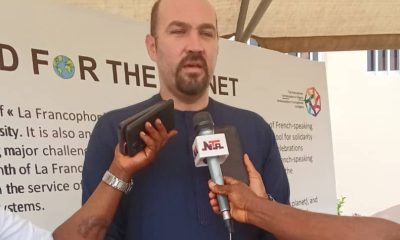
 News22 hours ago
News22 hours agoFrancophone Ambassadors, Nigeria Unite To Fight Against Climate Change
-

 News17 hours ago
News17 hours agoFive suspected kidnappers eliminated by police in Delta
-

 Metro9 hours ago
Metro9 hours ago‘My husband always makes love throughout the night until morning’ – Woman Wants Divorce
-

 News4 hours ago
News4 hours agoUNUSUAL! Without invitation, Police declared me wanted — Daughter of ABC Transport owner
-
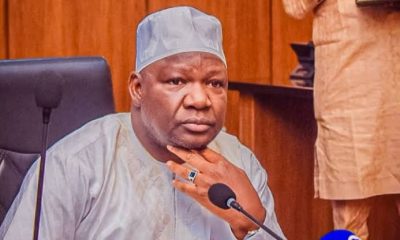
 News29 minutes ago
News29 minutes agoWeeks to 2nd anniversary, Niger deputy gov, plans to resign, move out personal effects


